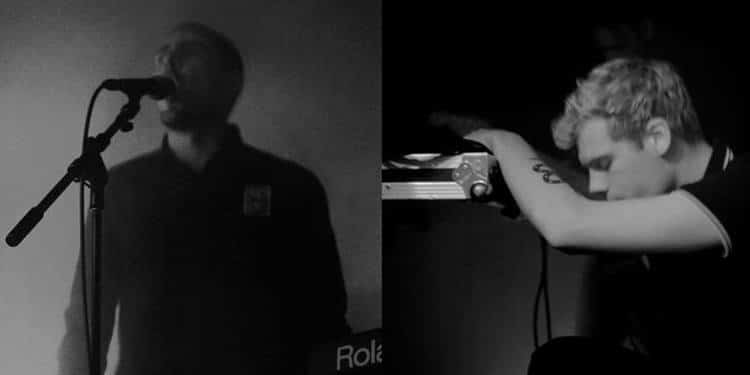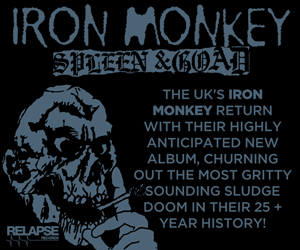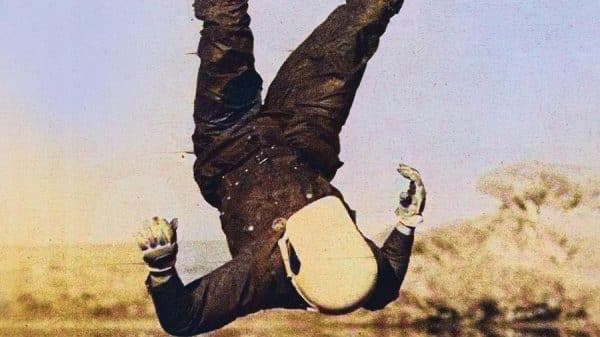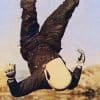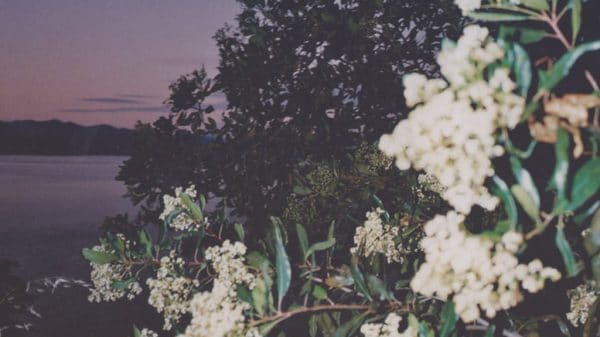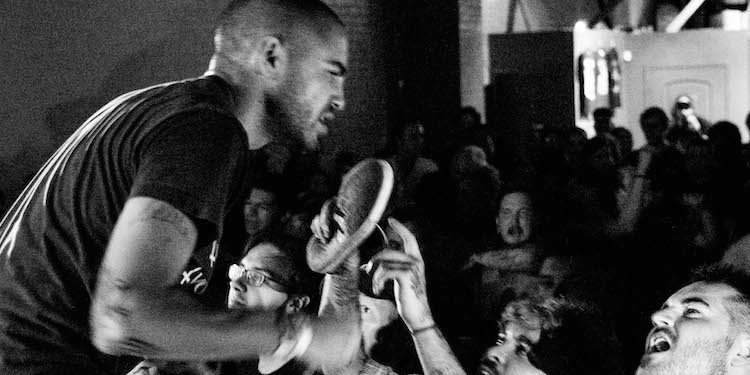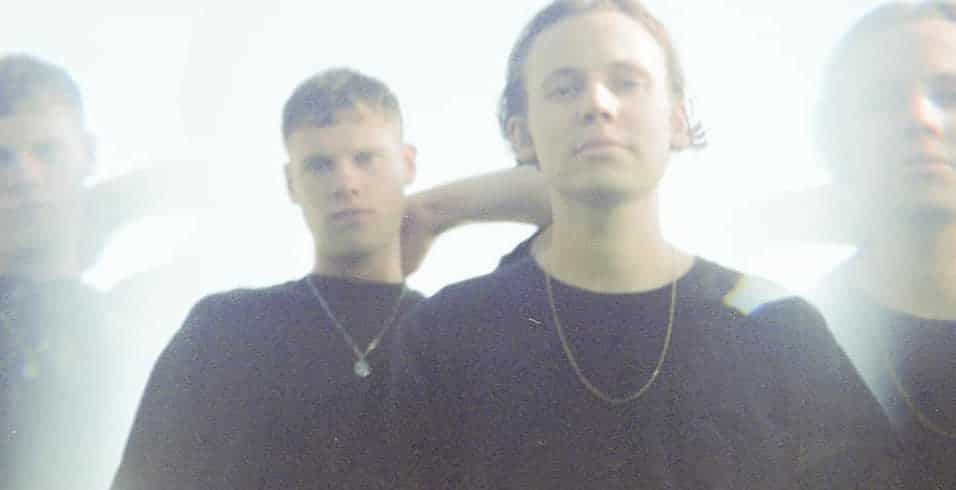Matthew Finner interviews Death Bells
Antonin Artuad said that “life is a burning up of questions.” What questions does Standing At The Edge Of The World concern itself with?
Remy Veselis: I take away a lot of open ended questions with this record that I don’t know if I will ever have the full answers to. Why do we care about things, why do we make the choices we do and how do you keep going in life when you don’t want to are some that spring to mind.
Maurice Santiago: “Do I really want to keep on living?”
Will Canning: The underlying question asks “how far can a single human’s spirit be pushed?”
Our relative youth and inexperience allows us to view the world in a wondrous way, and we are all relatively happy people. The lyrical context of the record concerns itself voyeuristically with the struggles of loved ones and friends. It is their narrative, not mine.
If Death Bells provided the score to a single moment, describe the scene and what it would it look like.
RV: What I love so dearly about art is that whatever you think something means, that is what is right for you personally. For me, Death Bells has provided the score to some major events of my my life so far because I have been living within Death Bells since I moved back to Australia. I’m not sure I can pinpoint an exact moment, but there are a few that stand out. One would be standing in an empty carpark in the Los Angeles hills overlooking the city and reflecting on how my life got to being able to tour with my best friends in a foreign country. That moment was full of joy. A more sombre one, but one that gave me hope, was being able to contribute to songs that pulled from some tragic deaths that occurred in the lead up to writing Standing At The Edge Of The World. Some of those songs score the feelings that I had inside of me after grieving with my friends, and writing guitar parts influenced by those experiences helped with overcoming that horrible period of time.
MS: All my close friends sitting atop Angel’s Point in Los Angeles with two 30 racks of Modelo as the sun sets on the first night of the rest of our lives.
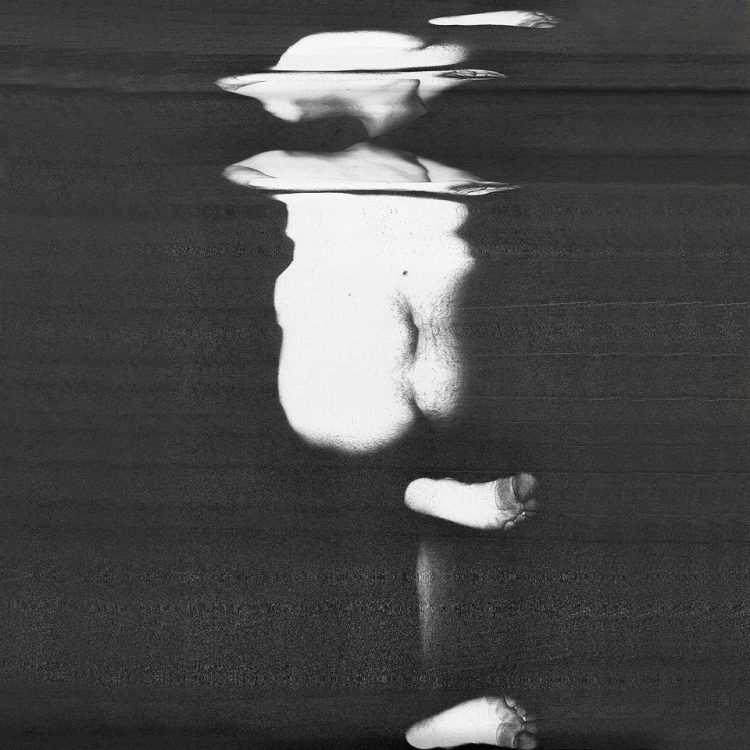
Myles Pedlar
What’s changed for you as a band between this record and the last? As you mentioned touring has had a profound impact on you as well as some tragic life experiences, what events shaped Standing At The Edge of the World?
RV: A lot changed, actually. We are all still very young, but the EP seems like it was a lifetime ago, even though it only came out last year. How the EP sounded was born out of necessity. Our first drummer left the band before we begun to record and we also didn’t have much money to invest in the recording. We decided to use a drum machine and Will taught himself from scratch how to record music. This was, frankly, incredible. He achieved so much in such a short period of time. Maurice, Will and I lived in a delipidated terrace house across the road from where we put the banners up for the album artwork, so we just recorded it in between work and other life events. With “Standing At The Edge Of The World”, we had a few more resources like having someone to drum on the record and being able to record with our friend Elliot at Chameleon Sound, so sonically I think this record sounds “bigger” and “brighter” so to speak. As for the writing side, we are constantly evolving and going through different experiences. I can’t speak for Maurice, Will, David and Aron, but for me my contributions were heavily influenced by life events that were mostly negative. I wouldn’t say I’m a negative person, and I used those aspects to reflect on and take as much out of as possible, but there were some hard times. There were a few deaths that took a toll. A friend passed away on the same night after spending the day together and that really had a profound impact on my whole outlook on life. Seeing people you care about suffering, when you can’t do anything to fix the situation, is a heartache I don’t ever think I will ever be able to be okay with. Professionally, a company I loved working for moved completely to the US, so I was out of work in a field that was very specialised and a role I valued doing. It was my first experience with professional business where one person’s choices can change a company, so that was interesting to see. Life kind of got turned upside down for a while, but working on this record and having friends and loved ones around to support each other was my saving grace.
WC: Since returning from the tour over a year ago, we had to reinvent ourselves a little bit as a band. Playing around with drum machines and synthesisers was a positive thing for us, but we sorely needed to make a record that contained immediacy within the music. That was the catalyst, I think, for doing a proper ‘band’ record. The music reaches new heights and required a lot of emotional energy to do so. The recording process was fraught with illness towards the end, from being stifled in a room. That was my least favourite part of all this. Writing was cathartic and positive. It is nice to have 40 minutes of music that reflect the experiences, both positive and negative, of those close to myself and the others.
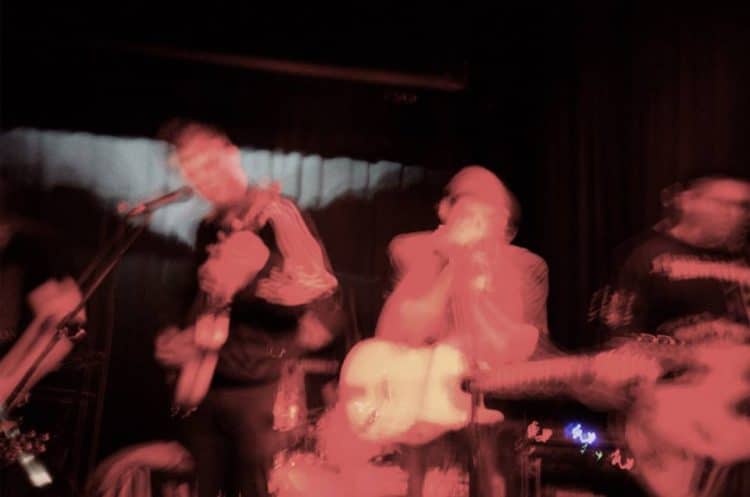
Annabel Blue
Thematically, the record centres on people in my life who have faced mental illness, addiction, death, unemployment and other struggles with tremendous bravery. I hope that the record can be a way of putting to rest a lot of the sadness around us all.
Death Bells seems very calculated in a time when many bands and artists appear to simply be going through the motions without being self-aware or critical of what they are creating and how they present it. What do you attribute this to?
RV: I like your observation that you you think we are a calculated band. That is definitely something I have kept in mind, as now it is so easy to do things because the access is far more wide ranging than in the past. We do the things we do because that is just how we are as human beings. Collectively, we all care about what we do a lot, and if you are putting so much time, effort and energy into something, why settle? For me, I have always connected to authors and musicians who have a clear vision, an aesthetic and a reason as to why they do the things they do. I try to ask myself the question of why a lot in my life, so I don’t just go floating through this precious existence without doing what I want to do.
MS: You need to make people have an affinity towards you and your music. I had played in the hardcore scene for years and I think the nonchalance of just making music for the sake of it was a huge part of that community and it was more regressive than anything. I didn’t realise this until I was like 20 and wanted to start this band. We are doing it for real this time.
WC: We have collective good taste. Why would we waste that? It’s important to give a shit.
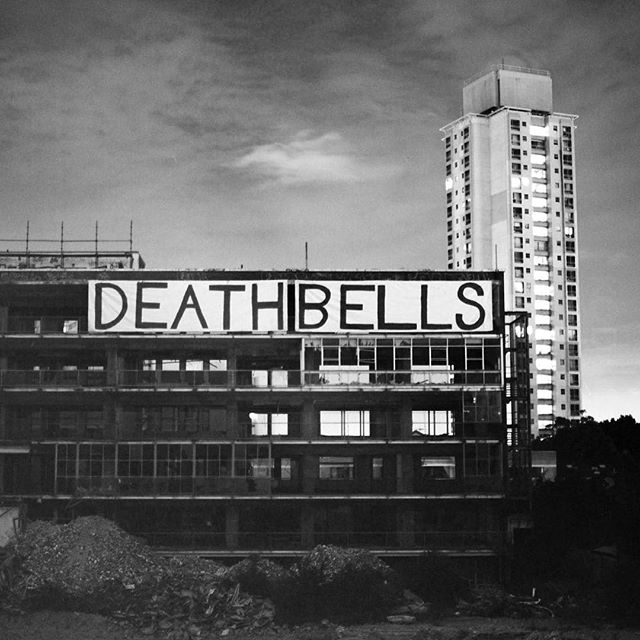
Recently a friend and I were discussing how we no longer felt that we connected with music, literature and art in the same meaningful way we once did. We have access to everything all at once with minimal effort and as a result we simply consume art without letting ourselves feel the weight of it and truly be affected by it. Has a shift in how we consume content affected you at all?
RV: It absolutely has 100%. There are positives and negatives of the increased accessibility with all aspects of life, but I do think as a generalised statement that people aren’t connecting with art as deeply as they have previously, because now there is no downtime in life unless you force yourself. I see most people’s first reactions now is to pick up their phone instead of being present in the world, and for me to connect with something I need time to process it. I can’t consume a record on Spotify and then know if I love it or not straight away. Because access is no issue now, new art isn’t as highly valued because there is so much more of it being released so frequently. You don’t have to put the time in to find cool stuff now, which I think takes away a little bit of the “special” factor of music for myself.
WC: I went on a cruise recently and it felt wonderful to be out of everyone’s reach for a little while. There is no phone reception in the middle of the ocean. I consume music much the same way now as I always have. Maurice and I run a record label, but I’ve never been avidly involved with vinyl fetishization. I’m very happy to have lots of music at my fingertips. It’s nice that people can send us music they’ve been working on via email. Maybe I’m typically millennial.
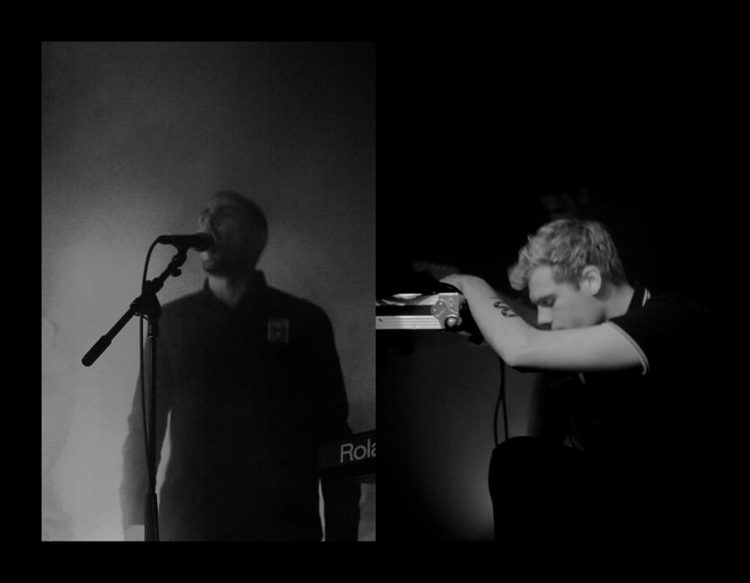
Alx Johnstone
I have gone back to your self-titled numerous times and I certainly connect it to specific moments and experiences in my life over the past year. After only a few listens I could feel that Standing At The edge Of The World would carry that same weight. I think you’ve already alluded to numerous reasons why this may be, but how does the idea of connecting with people vs creating something to be consumed play into how you’ve conducted yourselves as a band?
RV: I think it is an enormous part as to why we do what we do. I want to make songs that are an expression of myself and that can also be interpreted by the listener however they want to. Humans thrive on connections, and I would much rather connect with strangers on some level with art I make then just make something that is marketed to be consumed by the masses and then never revisited and forgotten.
WC: I really hope people connect to the words. Universality was something I thought about when writing. I didn’t want to sing in metaphors or make allusions to our own context. Specific events and places are much less important on this album than previous record. I want the statements made to resonate clearly and boldly now.
Because I love lists, what are some books, movies and records that influenced you and Standing At The Edge Of The World?
RV: Hermann Hesse’s Siddhartha always has an influence on any art I make. It’s my favourite text and I think it always will be. I don’t intentionally pull similar guitar tones from other music, but I am heavily influenced by those around me who inspire me, such as Melbourne based group Dormir. Adrian Borland, HTRK and Nick Cave are other musicians that have influenced me and what I brought to this record, but these influences aren’t necessarily shown within the sonic sphere of the record.
MS: Luv Is Rage
WC: My last year has been fairly insular. I’ve engaged mostly with the art of my peers, and that has been the biggest inspiration.
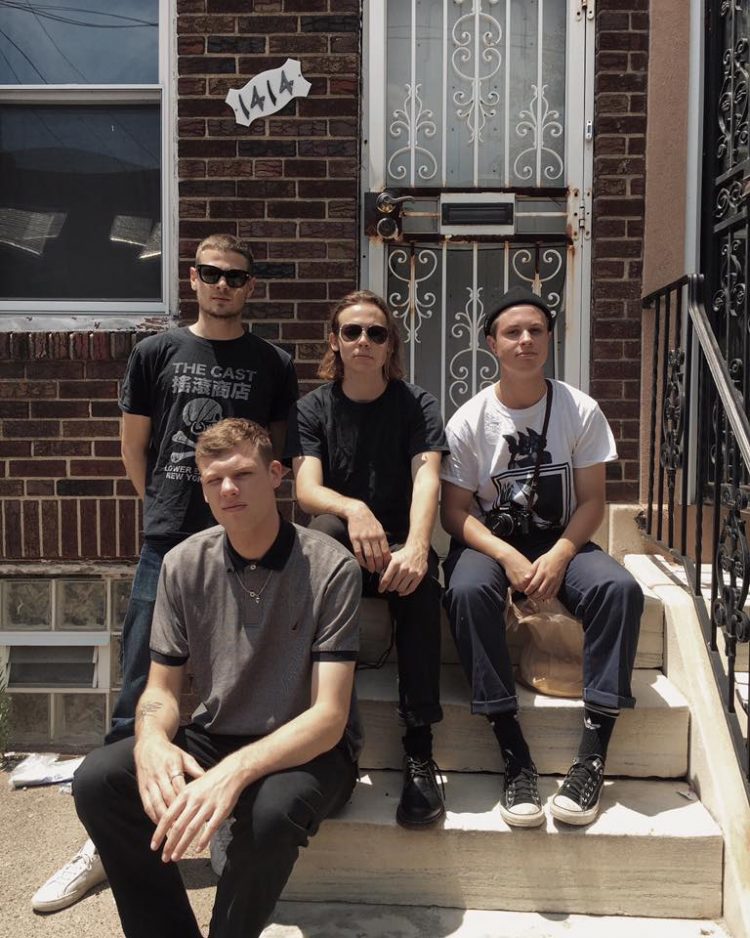
Tracy Nguyen
Please walk me through the creative process for Death Bells and what if any are the responsibilities or roles of individual members and how you collectively exercise restraint while remaining active.
RV: As the band has bloomed we’ve shifted around a lot creatively, which I think is a good thing. Some stages it has been one person writing the majority of material, to then taking more of an electronic approach and starting songs with a beat on a laptop and expanding from there. For “Standing At The Edge Of The World”, we incorporated spontaneity a little more. We were all in the same room every week working on songs on the spot, whilst I was also sitting at home most nights writing guitar parts that were a reflection of how I was feeling during that time. We also shifted around instrument wise, with Maurice now playing bass. It cannot be understated how his bass playing helped develop those songs.
MS: I start with a bass line that makes me feel nostalgic. Not nostalgic in a way that it sounds like something from a previous era, but a melody that can take me to a certain point in time that has relevance to me. For instance the bass line in ‘Everybody Wants To Rule The World’ when it goes back into the verse from the chorus reminds me of landing in LA and driving down Sunset for the first time. Creating a melody that, like you said, scores the soundtrack of your life.
WC: I don’t play instruments in this band anymore. For me, that was a load off that helped me to focus on my writing properly. I finalised most of the lyrics that I had been throwing about on a trip to Melbourne earlier this year. The industriousness of that city made it a really productive time. Organising thoughts and feelings can be hard for me if it is rushed, so it was nice to do the recording over a 6 week period. That gave all the ideas a bit more breadth.
I think there is an interesting relationship between bands and the general public, a band is a collective group of individuals and a separate entity but often times members become known and defined by the band and the actions of the individuals within that collective. How do you separate your identity within Death Bells and as an individual? How has being in the band affected yourself as an individual?
RV: That is a good question. I don’t know if you can truly separate yourself as an individual when you are committed in a large capacity to an overarching group, but we all have different interests and other projects outside of Death Bells. Maurice and Will run the label Burning Rose, DJ and play in Muscle Memory. I’ve been working on a new band for a while now and have recently changed paths career wise and David and Aron all have different bands going on too.
WC: It is a strange world to shift into, being at a show or being on stage. I am a fairly reserved person most of the time, but when I sing it is different. When we perform it is nice to be able to make loud noises and express ideas in a way that most would not allow themselves to. It seems like when we perform, everyone in the band has a different norm.
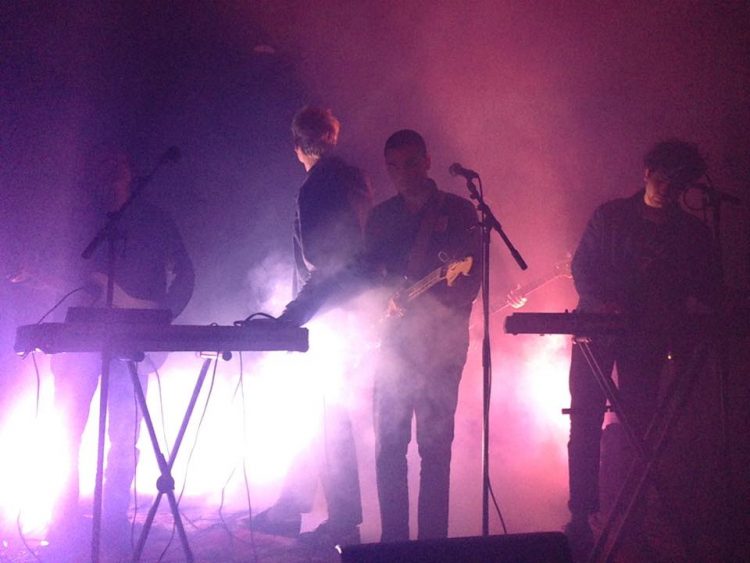
Do you think the style of music Death Bells plays lends itself to a sense of nostalgia or is that feeling simply a result of drawing from specific moments and feelings you’ve experienced which people connect with?
RV: I honestly don’t know about that. I think it is open to each individual’s interpretation of our music. Individual interpretation can be wildly different. It was fascinating to recently see some people compare Only You to bands that I have no connection with at all: Paramore and Anberlin. That is what makes music so interesting though, there is no right or wrong. We have had many people comment about how our music reminds them of past bands and times in their life, but that is not something I have tried to force in our writing. I can see why people feel nostalgic with our music, but I draw on my feelings and modernise older genres I like when writing guitar parts, so maybe that’s where that sense comes from for some. We aren’t trying to be any other band, Death Bells is Death Bells.
WC: We are modernising a lot of older styles of music. We are conscious of making the sounds proper, and have no aspiration of being a band that panders to lo-fi romanticism. People might compare us to Joy Division or something but that’s very short sighted. We are drawing on our own different narratives to create something new. I think our music is far prettier than a lot of ‘post-punk’ to come out of Australia in recent years. And whilst I love our ugly counterparts, I wouldn’t want to mimic them. We’d do a poor job at that.
Anyone that has spent time touring knows the majority of it is spent either in the van driving or simply just waiting. In my experience how this time is spent is cause for concern and great debate, often responsible for meltdowns between band members. How do you kill time before load in or while on the road?
RV: We genuinely enjoy spending time together so we haven’t had too many meltdown issues besides Maurice losing his mind in America last year. Generally we like to sleep a lot in the van or play savage card games like Coup which exacerbates any tensions there might be, but it is so much fun that it is worth the arguments that playing it entails.
MS: Coup and McDonald’s.
WC: Lots of cigarettes, card games, and conversations with new people. We spent just one night with the band Draa, and I count them to be some of our closest now.
What are you looking forward to most over the next year?
RV: Escaping the mundane existence of working a full time job and touring a lot more than what we have this year. We have some big plans in the works so hopefully they come to fruition. I hope that the record takes us to new geographical locations and people connect to it in some capacity too, I think that will help validate the time and energy we have spent creating it.
MS: The unpredictability of it all; the uncertainty of where we will be a year from now.
WC: It feels nice for this record to be out and to be able to turn over a new leaf. In the last couple of weeks I’ve been through a bad breakup and experienced a lot of change. Hopefully it’ll set this beautiful heaving mess of a band on course. We have been doing our own thing for a long time now, and whether people embrace it or not I think we all want to take it to a new place.

